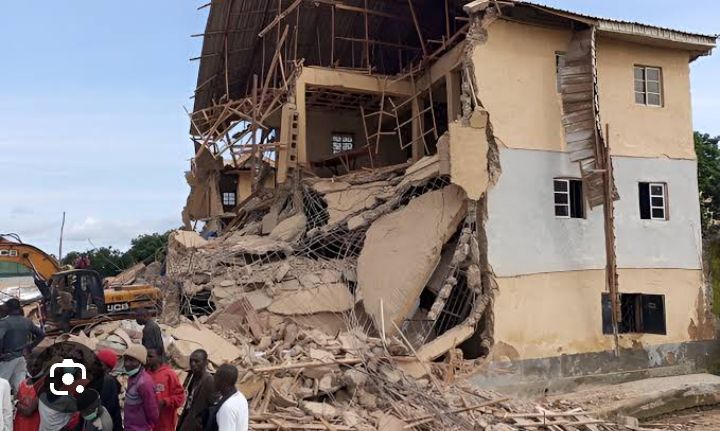National Issues
Building Collapse And The Importance Of Prioritizing Safety -By Joshua Bamidele
The Saint Academy School tragedy serves as a poignant reminder of the importance of proactive risk management in protecting lives and property. By learning from this incident and implementing measures to mitigate similar risks, we can create safer environments for our children to learn and thrive.

My heart goes out to the families and loved ones of the 22 students who lost their lives in the recent building collapse at Saint Academy School in Jos, Plateau State, Nigeria. This devastating incident has left about 150 others injured and a community in shock. While no words can adequately express the sorrow, let us have a quick review on how such tragedies can be avoided in the future.
Root Cause Analysis:
Initial reports indicate that the building collapse may have resulted from structural weaknesses, possibly exacerbated by poor maintenance, inadequate construction materials, or design flaws. Nonetheless, it is essential to conduct a thorough investigation to identify the root causes and contributing factors.
Lessons Learned:
1. Regular Maintenance: Implement a rigorous maintenance schedule to ensure buildings are regularly inspected and repaired.
2. Structural Integrity: Conduct periodic structural assessments to identify potential weaknesses and address them proactively.
3. Compliance: Ensure adherence to building codes, regulations, and safety standards.
4. Emergency Preparedness: Develop and regularly practice emergency response plans to minimize harm in the event of a disaster.
5. Stakeholder Engagement: Foster open communication with students, staff, parents, and the community to encourage reporting of concerns and near-misses.
Recommendations:
1. Conduct a comprehensive risk assessment of school infrastructure.
2. Develop and implement a robust maintenance program.
3. Provide training for staff and students on emergency preparedness and response.
4. Establish an incident reporting system to identify and address potential risks.
5. Foster a culture of safety and transparency within the school community.
Conclusion:
The Saint Academy School tragedy serves as a poignant reminder of the importance of proactive risk management in protecting lives and property. By learning from this incident and implementing measures to mitigate similar risks, we can create safer environments for our children to learn and thrive. All stakeholders should be committed to ensuring that such tragedies are avoided, and communities are shielded from the devastating impact of preventable disasters.










